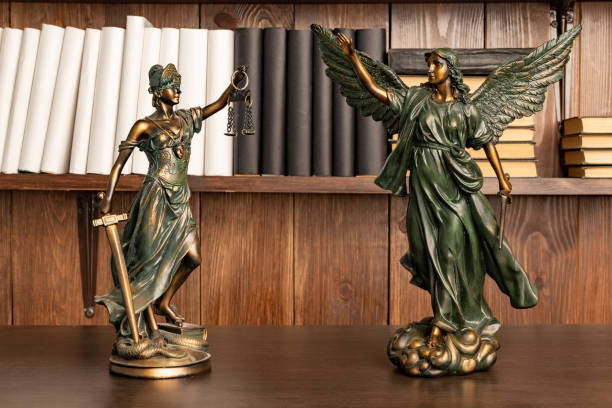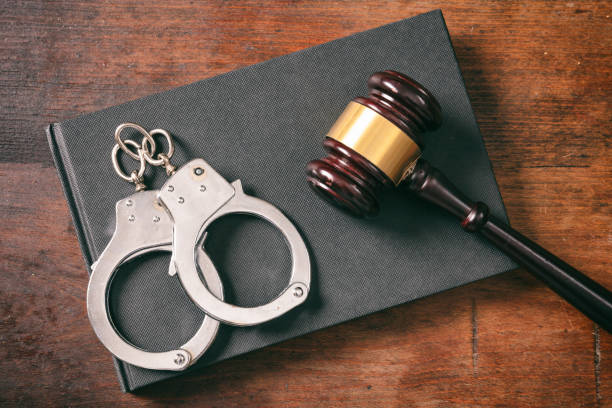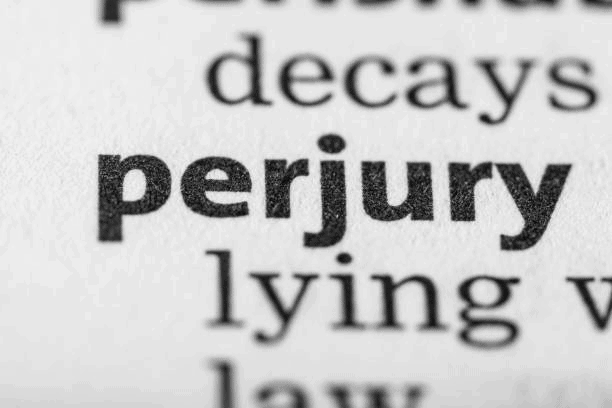What is perjury? It is a serious offence where a person gives false evidence or statements under oath. A testimony of the witness in court proceedings has a great effect on the outcome of the case. It can either lead to a conviction or an acquittal of the accused during a legal proceeding.
Courts and the jury rely on the truthfulness of the statement because of the oath made by the witness to tell the “truth, the whole truth, and nothing but the truth.” However, despite taking an oath, some witnesses still take advantage of the power of their testimony and knowingly abuse it in an attempt to mislead the court as well as the jury.
The Crimes Act 1900 deals with this offence – its acts, and legal proceedings, among other things.
What Constitutes the Serious Offence?
Section 327 of the Crimes Act 1900 provides that the offence of perjury is committed when a person knowingly makes a false statement under oath or affirmation during a judicial proceeding concerning a matter that is relevant to the proceeding.
For example, a witness who lies about their weight, simply out of embarrassment, does not commit perjury unless their weight is directly relevant to the case. It is considered an indictable offence and one can incur penalties up to ten years’ imprisonment. Authorities can prove perjury if the accused, under oath:
- Makes a false statement relating to a legal or judicial proceeding,
- Knows such testimony to be false,
- Willfully and intentionally made false statements, and
- Attempted or intended to affect the court proceeding by making such a false statement.
A ‘judicial proceeding‘ is defined under Section 311 and includes any proceeding before a court, tribunal or commission where evidence may be taken on oath.
In addition, it is crucial to note that a person may still be found guilty of this offence if they issue a statement regardless of whether a judicial proceeding has commenced or ever commences. Perjury charges apply in NSW regardless of whether the statement made is verbal (in court) or written (in an affidavit).
Actions that could amount to such offence include:
- Lying in court to protect a family member,
- Falsely stating in a court that someone else committed a crime,
- Providing a false alibi for someone when giving evidence at a hearing, and
- Filing a sworn affidavit that contains false information.

What Does the Crimes Act 1900 Say?
Under Section 334 of the Crimes Act 1900, the following circumstances are irrelevant to committing perjury:
- A person gives the statement or oath under survey verbally or in writing,
- The forms and ceremonies adopted in administering the oath, as long as the person agrees to the form,
- How the judicial tribunal was constituted or held in place as long as it is, so long as it actually acts as a judicial tribunal in the proceeding in which the statement is made,
- Whether the person who makes the statement is a competent witness or not, or whether the statement is admissible in the proceeding or not, or
- The law governing an arbitration agreement, or the relevant proceeding is, or not the law of NSW.
The presence or absence of these circumstances will not negate a charge of the offence. The County Court or the Magistrates Court will most likely hear the perjury charge.
Perjury and Related Acts Under the Crimes Act 1900
The Crimes Act 1900 lists perjury and related offences as well as their penalties. They include the following:
1. Perjury with intent to get conviction or acquittal
Section 328 of the Crimes Act 1900 makes it an offence for a person to procure or plan the conviction or acquittal of another person charged with a serious indictable offence by lying in court. The violator can receive a punishment of up to 14 years’ imprisonment.
2. The offence of falsely swearing on indictment for perjury
Under Section 4 of the Crimes Act 1900, an indictment includes any information presented or filed as provided by law for the prosecution of offences.
Furthermore, Section 329 provides that if on the trial of a person for perjury the jury is not satisfied that the accused person is guilty of such offence but is satisfied that the accused is guilty of an offence under Section 330, it may find the accused not guilty of the offence charged but guilty of the latter offence.
3. The offence of false charges not amounting to perjury
Section 330 of the Crimes Act 1900 provides that a person who makes on oath any false statement knowing the statement to be false or not believing it to be true, and it does not amount to perjury, is liable to imprisonment for 5 years.
4. Making contradictory statements on oath
Section 331 of the Crimes Act 1900 provides that the jury can charge a person if they find that:
- The accused made two statements on oath that are fundamentally irreconcilable with the other, and
- One of the statements is made by the accused, knowing it to be false, and the trier cannot determine which one is the false statement.
- Subornation of Perjury
This occurs when a person causes or procures another person to commit the offence.
Section 333 of the Crimes Act 1900 provides that a person who procures, induces, or persuades another to give a false testimony is liable for up to 7 years’ imprisonment. However, if it was for a trial for a charge of a serious indictable offence, the maximum penalty would be up to 14 years’ imprisonment.
It must be noted that the list provided in this article is not exclusive. More acts are found on Part 7, Division 4 of the Crimes Act 1900.
Restrictions on the Offence
Section 338 of the Crimes Act 1900 provides that a person is not to be prosecuted for this offence except:
- by the Director of Public Prosecutions,
- at the direction of the Attorney General, or
- by any other person with leave of the judicial officer before whom the alleged offence occurred (or in their absence, with the leave of the Supreme Court).

The Importance of Seeking Legal Advice
Perhaps you gave a false statement because you were under duress. Or maybe you believed that the statement you made was true or you did not have a proper understanding of the question asked. Perjury is a serious charge that comes with grave penalties.
If you are facing a charge of this offence, seek legal advice as soon as possible. JB Solicitors has a team of experienced lawyers that can help with your case. We ensure that we provide the best services to our clients.
Contact us today
